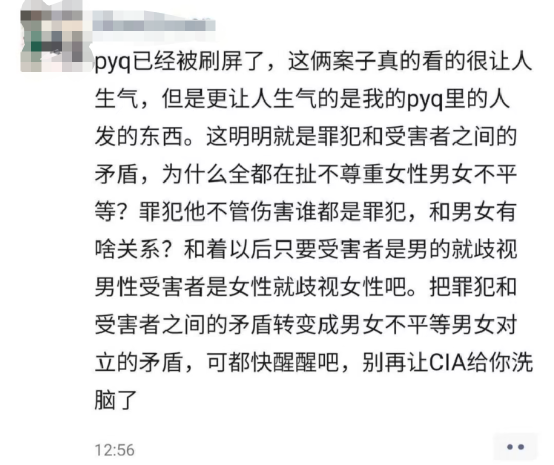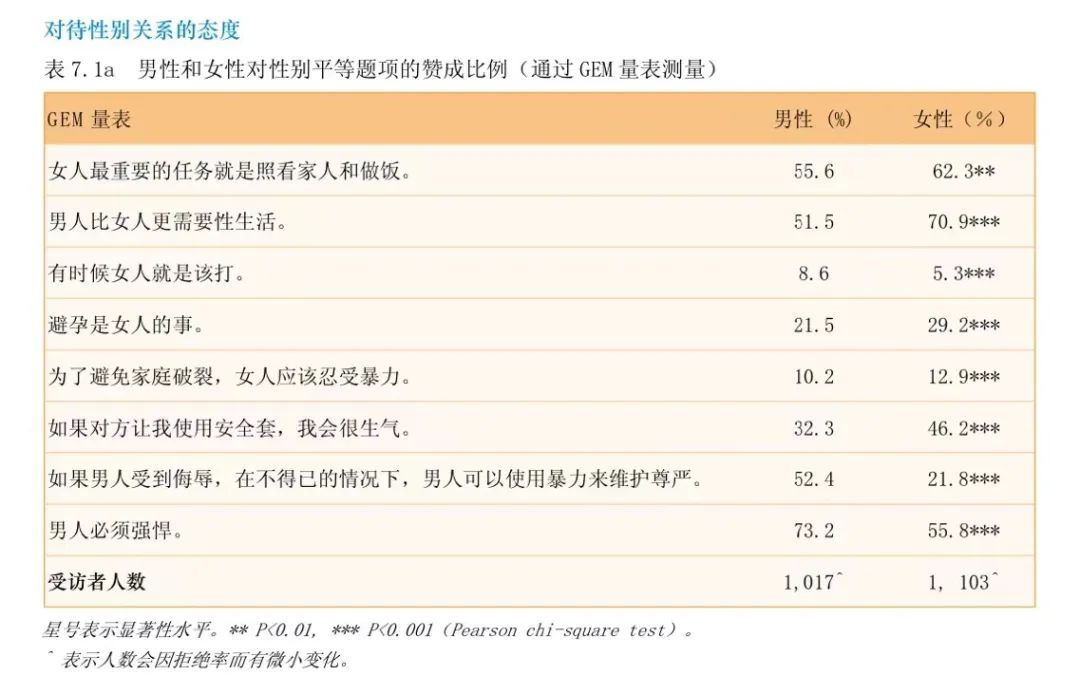
一个由青年主导的哲学社团。
The Tangshan BBQ incident is a gender issue.

Author / Xing Yuan, Wei Ming, Circle, Hui Jie
Editor / Xing Yuan, Hui Jie, CC, Ophiopogon
On June 10, a violent crime against women occurred in a barbecue restaurant in Tangshan. At the moment of 2022, it has caused a resounding response from the Internet public opinion, and also triggered a wide range of public discussions.
Such incidents can be heard from time to time in today's society, but no matter how frequent such incidents are, many people still insist on classifying them as general violent crimes. As a result, the keyword "gender" is bypassed and defined as "simple evil".
And we believe this case is as much about violence as it is about gender. First, we want to state that it is not an ordinary incident of violence, but a typical incident of gender-based violence. Second, this incident of gender-based violence is not just about some “bad guys”, but reflects some deeper mechanisms of gender inequality and male hegemony —one that feminists and their allies need to fight together.
1 "Gender Violence"
What is gender-based violence? Gender-based violence is "violence based on an individual's biological sex or gender identity" (Gender-based Violence). While gender-based violence can be experienced by any gender, women still make up the majority of victims. Socially constructed gender norms create masculinity and masculinity (requiring "actions consistent with gender identity"). For example, men are often encouraged to take risky actions, compete with others for dominance, use force to address threats, not express their weakness and pain, etc. The emphasis and maintenance of this temperament has led to gender crimes against women. [0] Direct or implicit violence against women makes women relatively vulnerable, and makes them isolated and unable to save themselves after being unfairly or even violated.
Violence against women has long been a global issue. The United Nations Declaration on the Elimination of Violence against Women defines violence against women as “any act of gender-based violence that causes or is likely to cause physical, psychological, or sexual harm or suffering to women, including threats to commit such acts, Coercive or arbitrary deprivation of liberty, whether it occurs in public or private life”. [1] Research shows that more than 1/4 of women in the world have experienced domestic violence [2], and more than 1/3 of female murders in the world are committed by intimate partners [3]. These facts demonstrate the prevalence and pervasiveness of gender-based violence around the world, which has always been around us.
We believe that this incident is a typical case of gender-based violence; here, we try to review the details of the incident in words to clarify why the specific act of violence can be called gender-based violence. (Friends who are very familiar with the details can skip this paragraph.) The existing video data shows that the perpetrators have unabashedly expressed their intention to harm the women who are dining in the store since they entered the store. Malicious words and threats by expressive physical gestures. Surveillance data and related evidence can testify that this is a very typical sexual harassment with obvious sexual assault intent[4], which is a premeditated crime.
In accordance with Article 1010 of the Civil Code of the People's Republic of China, the "physical movements" we are talking about here are undoubtedly "sexual harassment of others by means of words, words, images, physical behavior, etc. against the will of others." Therefore, the questioning voices such as "this is not sexual harassment but a fight" are completely untenable.
After being rejected and resisted by the victims, the men's attitudes turned extremely bad, they uncontrollably beat the four victims after shoving them, and attacked a woman in the head with a nearby device As for her falling to the ground, she violently beat another woman with kicks and punches. After the victim collapsed to the ground, she continued to beat her and dragged her outside the store. In the open space outside the store, the man who had initially harassed the women unsuccessfully, together with several other men, brutally beat one of the women for a long time, making her unconscious at the time. After the incident, two of the four victims were admitted to the hospital emergency department and have not yet been discharged. The other two suffered minor injuries.

In the following pages we will shed more light on why this is a gender issue, the importance of understanding the perspective of gender analysis, and how masculinity, androcentrism and established sexual domination create an atmosphere of gender violence and a kind of gender terror.
2 Why is it a gender issue?
We often hear some people use this sentence: "It's not really a gender issue, it's a XX issue". This XX can be strange expressions such as "the evil of human nature", "criminals", "underworld", "there are psychopaths everywhere and how to prevent them", and so on. These people often allege that those who want to use a gender lens to discuss the issue are "chasing the opposition between men and women." In other words, although they took a step back and reluctantly admitted that it was indeed gender-based violence, we should not adopt a gender perspective to analyze this issue, and should not discuss more macro factors such as patriarchal culture, male gender norms, etc. role in such cases.

The most basic rebuttal to this is that the gender perspective on this issue is not contradictory with the psychological perspective, legal perspective, etc. - "sexual harassment" is so definite, and it is ridiculous to deny the gender perspective. But our opponents aren't total idiots without common sense (hopefully). In order to deny that the incident "is a gender issue", they put forward a further argument, specifically, there are two related paths of argument: 1. Insist that this incident is only an individual case related to individual characteristics, and is related to the larger gender structure is irrelevant; that is, the abuser just happens to be male and they happen to be the bad guy/pervert. 2. In cases of gender-based harm, there are also cases of women's violence against men, so don't "snap hats" on anyone. In this paragraph, I will respond one by one.

Some people believe that "this incident is only an individual case related to individual characteristics, not related to the larger gender structure". Responding to this argument, one cannot just list the sex ratio figures — numbers alone do not constitute a complete argument, as opponents will always argue that these individuals act as individuals and cannot be "representative of all men." Therefore, we must discuss whether male identity, patriarchal culture and male norms (norm) are at work in this case.
In theory, we can imagine a case where the perpetrator and the victim are of different genders, but the case has nothing to do with gender issues in the narrower sense. Suppose there is a male sociopath who enters a restaurant with a gun and fires at people completely arbitrarily, and the injured happen to be all women. Although the perpetrator is male and the victim is all female, we can indeed say that the cause of this case is mainly the personal (or family, etc.) characteristics of the perpetrator, which is not directly related to the gender factor (but may still be indirectly related). Can this BBQ restaurant incident be compared? Of course not.
Because our opponents often self-righteously bypass "sexual harassment" with very obvious gender characteristics, and focus on the subsequent violence (called "fight") and think it has no gender dimension, so I Here I want to focus on explaining why the subsequent "fight" also reflects many characteristics of patriarchal culture.
Anyone with a basic understanding of gender studies will know that a gender is constructed on the basis that individuals assigned to that gender acquire, through social discipline, corresponding gender identities, and corresponding gender norms. ) . They are behaviors and attitudes that are considered by society to be in line with gender identities, such as "males dominate outside, females lead inside", "men don't cry when they cry", etc. are common gender norms. Of course, the specific requirements of these norms vary from culture to culture, but in China in 2022, masculinity, while emphasizing strength and bravery, is also a common content of masculinity. For example, according to the 2013 study "China Gender Violence and Masculinity Research Quantitative Survey Report", 52% of male respondents believed that "men can use violence to maintain dignity", and 73.2% believed that "men must be tough" (while women The two agree significantly lower). [5]

Using this analytical framework, we can better understand why physical revolt against men by women who are sexually harassed in videos can lead to "anger" and extreme physical retaliation from these men. It is very likely that when a violent man encounters a woman's rejection and physical retaliation, he will think that he is "beaten by a woman" and "loses face". In a macho worldview, being "beaten" by a woman in a physical conflict is obviously very humiliating. This social norm of gender temperament, which must be maintained in front of women, is often (negatively) reflected in the cases of male victims of domestic violence. Being a "soft egg" and "girl" and forbearance. For example, a survey in New Taipei City, Taiwan showed that in 7,968 cases of adult domestic violence, male victims accounted for 21%. However, up to 70% of the cases were not reported because of "face issues". [6] (This leads to an irrelevant but very important argument that some male individuals are actually hurt by male hegemony.)
Going back to this case, when male "dignity" is publicly "challenged", and it happens in the public eye of many diners in the barbecue restaurant, so there is no way to hide it, male perpetrators will naturally be more inclined to use violence to protect their "male". dignity". The man's violence against the woman started when the harassment failed and she was rejected. This kind of violence against women after being rejected is not only a maintenance of masculinity, but also as a price for "resisting" and "rejecting" men. "punish". Furthermore, the perpetrator was not a single male individual, but was in a group of five or six young and middle-aged males that were suspected of being a gangster. In such groups, shared identities and behavioral norms are greatly strengthened (in this case, male identity and machismo behavior) - this is social identity theory in group psychology the concept of. In the video, within seconds of the physical confrontation, the gang swarmed up quickly and indiscriminately, and one of them even subconsciously beat a woman who was following him and was completely unprepared for the conflict - the male on them Group consciousness and behavioral norms, as well as gender-based group divisions, are clearly visible.

We must emphasize that the possible gangster nature of the case itself does not conflict with the formation of a male cultural community hidden in the perpetrators and public discussions, and the maintenance of masculinity contained in it. Moreover, in the culture of gangsters and other (mainly male) criminal organizations, hegemonic masculinity is more evident than in society in general in order to gain the leadership position. [7] Hegemonic masculinity is defined as a set of attitudes and behaviors closely related to power that allow a minority of men to dominate women and men in general, placing them in a subservient position. [8] The characteristics of violence, ruthlessness, and even the righteousness of the rivers and lakes that are commonly thought of as "black bosses" belong to this category. Therefore, those who claim that the main problem with this incident is "underworld" and not "gender", their arguments may also be difficult to stand.
Why is the focus not on the use of violence but on gender-based violence? Because this society makes women especially vulnerable to violence, and makes women especially vulnerable to violence. Among them, innate physical muscle strength only accounts for a small part, and more important is the attitude of all aspects of society to face gender-based violence. From the cultural level of "men's subjugation of women by sexuality (violence) to show their masculinity", to the ignorance of gender-based violence at the judicial level, to the stigmatization of women's struggle at the social level, to educating women to withdraw from the public space at an early age Rather than educating men to show respect for others - this is systemic, complicit violence, not some accidental triad.
Of course, criticizing patriarchal culture is by no means an "indiscriminate attack on all men". Not everyone who has been assigned male, or self-identified as male, has these vicious tendencies. But the male-centred social structure and culture, as well as a certain patriarchal code of conduct prevalent (at least among men in many parts of the country), is clearly on display in this event. The struggle against this kind of dross is not about "infinitely expanding the target of criticism" and "blaming all men for the evil deeds of a few", but against the gender mechanisms and cultures that make such events possible .

Our opponents might go on to quibble that such vicious "perverts" can be found among women - but women who engage in this kind of behavior are rarely reported. Therefore, they will say that there are "perverts" both men and women, and that "female boxing" specifically singles out cases of male perpetrators, which is actually just a "double standard" prejudice.
A "counterexample" that opponents often invoke is the following event:

Many people said "gender swap, commented over 10,000" in a yin and yang manner, believing that this incident, as a case of women's gender-based violence against men, did not attract social attention because of the "double standard" of feminism. However, as we said last time, to argue whether an incident is "gender-based violence", it is necessary to know whether the perpetrator is motivated by gender factors, not just some personal, family and other motives. According to the public information, we don't know why the perpetrators of the Jieyang case committed the murder, but these male-centrism who are eager to "surround Wei and save Zhao" can't help but speculate that it was led by "Internet women's boxing"; and the signs of sexual assault are so obvious In the case of the barbecue restaurant, they insisted that it was not "gender violence". Moreover, if they are willing to use such a method of "surrounding Wei and saving Zhao", then we can also point out that the violence against girls and even the murder of baby girls in many families is only a lot more than in such cases, and these chanting "feminist double standards" "People seem to have selectively forgotten, I really don't know who is double standard.
The Tangshan BBQ restaurant case is by no means an isolated case of the type of cases that were attacked after failing to strike up a conversation. [9]
A deeper problem is that such gender-based violence is so common in women's lives that it creates an atmosphere of unease and even terror for women - this is not just serious violence such as sexual assault and rape, It also includes some more microscopic, everyday experiences. Men who have no direct experience in this area and lack of relevant sex education are rarely able to empathize with this kind of fear , and therefore feel that the response of "female boxing" is "exaggerated" and "stunned". We rarely hear of women coming in groups of three or five to strike up a conversation with interested men on the street, and physically threaten men, and this feeling is completely outside the cognitive range of ordinary men. Moreover, such threats often cannot be convicted and punished within the framework of the law, and therefore cannot be reflected in crime data - we can get a glimpse of how this atmosphere of threat is through the self-report of a man on an English-language forum produced. He says:
Once, I approached a little girl (about fourteen years old) on the street. I asked for directions first, then asked her name. She became frightened and walked away from me. I followed closely, and she went from brisk walking to running. Her gait was very special, like a newborn baby deer, turning back from time to time to see if I was still following behind. (I would like to clarify now that I absolutely hate rape, and I have no intention of raping or harassing her in any way.)
She had absolutely no reason to be afraid of me because I wasn't going to do anything. But that feeling, that feeling of a girl noticing you who's stalking you, and then picking up her pace, trying to get away from you, that's a good feeling. You became important to her; you were no longer just any ordinary passerby.
I know this behavior is despicable, but I do like it. I would go to another city, find a girl who is alone, and follow her. After a while she will notice me. If it was dark or after sunset, even if the route was roughly the same, they would be noticed. They quickly became restless and restless. I recommend you lonely incels take the time to give it a try. Just to scare her. As long as you don't harass her, let alone rape her, that (stalking) is just harmless psychological pleasure.

Of course, in addition to resorting to individual experience, we can also look at the investigation reports of relevant institutions. Taking workplace sexual harassment as an example, the data shows that more than 80% of the female respondents who participated in the survey have experienced harassment one or more times. On the contrary, nearly 80% of the male respondents have not experienced workplace sexual harassment. . Similar data are also presented for sexual harassment in a broader sense. According to the "Sexual Harassment Law and Judicial Case Study Report (2019-2021)" released by Yuanzhong Family and Community Development Service Center, in the three years from 2019 to 2021, more than 90% of the victims of sexual harassment-related lawsuits were female. [10] Similar data can be found everywhere, and I am afraid that some people will turn a deaf ear.
What makes this case so resonant is that it reflects a fear shared by women and other sexual minorities — something that many men are unable or unwilling to comprehend. They refuse to accept and acknowledge that society is safer for men and that many social structures are biased in their favor. To soothe their unease, they tell themselves, "I have everything in my life that I should have, and I don't need to bear any more moral responsibility." Perhaps that's why they firmly reject it. Justify this incident as a gender issue.

In the law, many laws and regulations have the problem of male centrism, which makes the law ineffective against gender-based violence and makes it difficult for women to defend their rights. The discussion on this point will not be expanded here for the time being. You can refer to a previous article of our agency: What is Androcentrism.
3 What should men do in the face of such an event?
After the incident, Hu Xijin, the former editor-in-chief of the Global Times, wrote that "real men should protect women." At the same time, some male netizens actively showed their in-depth interpretation of the concept of equality between men and women: "Isn't it saying that men can do what women can do? Isn't it saying that men and women are equal? Then men will not protect women." Another said: "Instead of discussing women's rights, it is better to discuss society's disapproval of men's righteousness."
So should men "should" protect women? What kind of behavior is preferable and what kind of behavior is more ethical? From the case itself, it is understandable at least to a certain extent that individuals do not lend a helping hand. Its dire condition makes the cost of protecting others prohibitively high. In the face of such horrific scenes, the first consideration for individuals is usually to protect themselves. But there is a difference between not blocking the punches or subduing the perpetrator, and standing by and turning away, so the courage and wisdom of the woman who called the police quickly in this violent incident deserves everyone's praise; everyone who stopped the violence and helped the victims All attempts are manifestations of virtue.
And the new concept of "equality between men and women" mentioned above and the threat and revenge against feminists that "men do not protect women" are even more arrogant and ridiculous. It was as if women had not experienced violence before because men had graced them so well that they had been well protected from an iron fist. But the truth is that violence against women happens all the time, and many are caused by men, even men (spouse, family and friends) who are obligated to protect them. Those who hold this view dare not admit their own lack of morality and humanity, courage and empathy, and instead make up excuses from women for not helping. It is very strong.
After admiring such toughness, when we look back at editor Hu's theory of "protecting women," we feel even more naive. Now that "masculinity" has been used by too many men as a passport to their violent, unsympathetic, self-centered behavior, as noted above, it is impossible, and neither is it possible to separate "true" from "false" masculinity meaningful. If moral masculinity was the real masculinity, corrupt masculinity is false masculinity; good men are real men, and bad men are fake men, it would be more direct to declare that "male" is "good". The so-called "true" masculinity, masculinity, masculinity is a gender essentialist cliché, and a debilitating cover-up. If we want to eliminate toxic masculinity, we must also smash this seemingly tender and unrealistic male-only virtue. Women's expectations and needs of men may be closer to "don't hurt me and be thankful" than protection.
Returning to the case itself again, this is a vicious crime and an incident of gender-based violence. We hope that the victims can recover quickly, that the criminals can get the punishment they deserve, that women can live without fear of violence in the future, and that more people can face the fact that "this is a gender-based violence incident" first. We hope that women will no longer be carried into ambulances due to violent incidents, and if such incidents unfortunately occur, we hope that more people will not deny the gender issue in the first reaction, not think that it is inciting opposition, and not fantasize about clearing their own name. Damaged and brutally persecuted by the media, but felt the sympathy and indignation experienced by the female community, and made changes to the best of their ability. /

(It is the appreciation code on behalf of the authors of the original text, you can scan here for the reward)

Notes and References:
[0] Franke K M. What's wrong with sexual harassment[J]. Stan. L. Rev., 1996, 49: 691.
[1] https://www.un.org/en/documents/treaty/files/A-RES-48-104.shtml
[2] Sardinha L, Maheu-Giroux M, Stöckl H, Meyer SR, García-Moreno C. Global, regional, and national prevalence estimates of physical or sexual, or both, intimate partner violence against women in 2018. Lancet. 2022 Feb 26;399(10327):803-813. doi: 10.1016/S0140-6736(21)02664-7. Epub 2022 Feb 16. PMID: 35182472; PMCID: PMC8885817.
[3] Stöckl H, Devries K, Rotstein A, Abrahams N, Campbell J, Watts C, Moreno CG. The global prevalence of intimate partner homicide: a systematic review. Lancet. 2013 Sep 7;382(9895):859-65 . doi: 10.1016/S0140-6736(13)61030-2. Epub 2013 Jun 20. PMID: 23791474.
[4] https://m.weibo.cn/status/4779195698512861?wm=3333_2001&from=10C5493010&sourcetype=weixin
[5] Wang Xiangxian, Fang Gang and Li Hongtao (2013): Quantitative Survey Report on Research on Gender Violence and Masculinity in China
[6] "Men account for 21% of victims of domestic violence in New Taipei, Taiwan, and 70% of them dare not talk about their face" https://www.sohu.com/a/162204655_123753
[7] For this, see a research report by the University of Kent: “Social values of masculinity and honour fuel contact with mafia-type groups” https://www.kent.ac.uk/news/society/17756s
[8] Scott, John, ed. (2015) [1994]. "Hegemonic masculinity". A Dictionary of Sociology (4th ed.). Oxford and New York: Oxford University Press. p. 302.
[9] There is an original error here, so I am sorry for the errata.
[10] Related reports can be found at https://china.caixin.com/m/2021-11-30/101811624.html
Like my work?
Don't forget to support or like, so I know you are with me..
Comment…